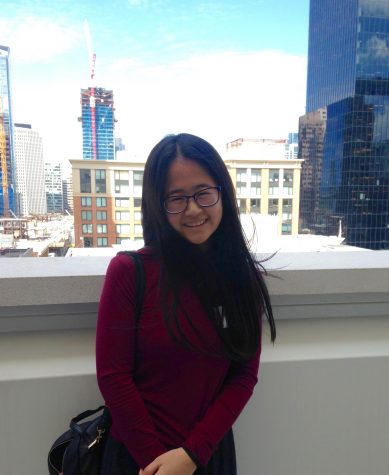AP Capstone begins its first year at DV by splitting disciplines
October 4, 2016
alf of College Board’s AP Capstone program, is being introduced to Dougherty with a unique twist: the STEM and humanities disciplines will be divided into separate classes.
AP Capstone is a new College Board program launched in 2014 with the goal of enhancing the depth of students’ learning and fostering scholarly skills. The program consists of two classes: AP Seminar, an interdisciplinary course that involves evidence evaluation from multiple perspectives and argument analysis; and AP Research, which is composed of a year-long research project on a topic of the student’s choosing. If a student passes the AP exams for both classes in addition to four other AP exams, they will receive a Capstone Diploma.
Dougherty Valley is now one of the 650 total high schools participating in the program, having introduced AP Seminar to its course list this year. It is one of two philosophies in the district, with the other being Monte Vista High School.
As the foundational course, AP Seminar is meant to be taken by sophomores or juniors so they have the opportunity of completing the program; as this is the first year, Dougherty has both juniors and seniors taking the course.
However, unlike most schools that have one AP Seminar curriculum, Dougherty Valley has made the decision to split the class between STEM and humanities.
Counselor Jessica Coulson explains that “this was to better enhance the learning experience of our students and allow them to delve into topics they care about.”
Most students have reacted positively to the choice to split. Senior Manaal Shafi, who is in the AP Seminar humanities class, stated that she took the class in the interest of preparing for college and her future, and is enjoying the split because “Dougherty usually focuses on STEM, so it’s nice to explore humanities.”
Several students have expressed concerns over being placed in the wrong discipline, but AP Seminar STEM teacher Alicia Kerr explains that this is not a dealbreaker because “all topics can be looked at from different lenses. For example, we’re looking at infectious diseases right now, which obviously has a scientific part. But, there is also a human part to it, and you can study it from that lens.”
Despite their difference in academic fields, the classes are alike in that they are meant to develop academic skills. To do this, the course has no strict curriculum. Rather, it explores themes throughout the year and works to develop scholarly skills.
Students and teachers alike are fans of the autonomy that this curriculum uniquely provides. Senior Victoria Mostovoy describes it as an “extended fishbowl” due to its heavy emphasis on class discussion and student involvement.
AP Seminar humanities teacher Mrs. Kathleen MacDougall compliments the course for being “well-structured and logical” in addition to expressing her excitement for the course’s “autonomous and student-driven content.”
Regardless of the unorthodox decision to split disciplines, AP Capstone seems to have made a good first impression on Dougherty, and is here to stay. Mrs. McDougall explains that “AP Capstone is actually made for all students. The goal is that even if students don’t want to take AP [classes], they can take this program.”
With similar sentiments, junior Rahul Reddy, an AP Seminar humanities student, expresses that “if you ever take an AP class, this should be it.”


